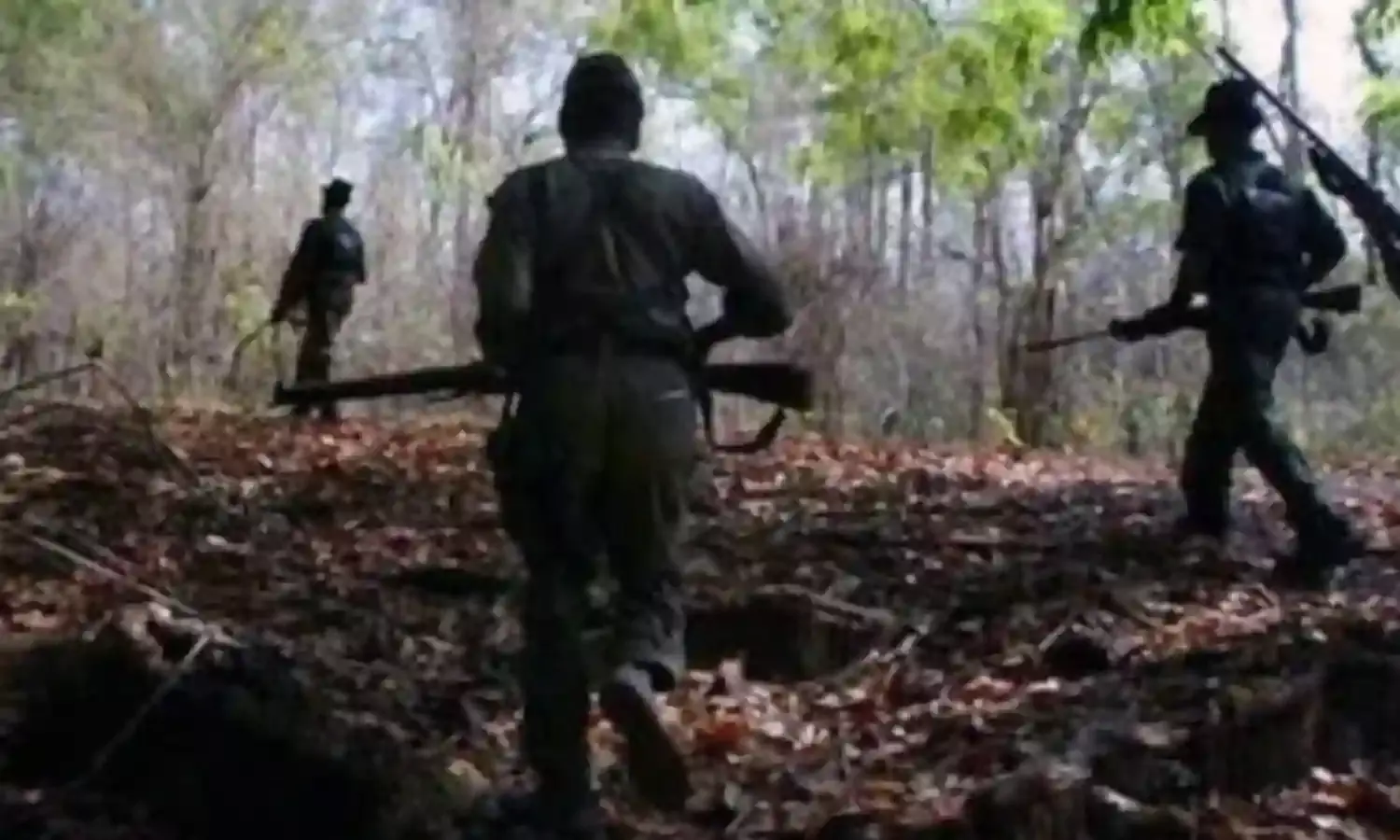Einstein Insanity, And The Maoist Challenge
Tribals confined to the binary of being either with Maoists or the State

The ominous narrative emanating from Maoist affected sub-regions of Bastar, Chattisgarh, comprises several stakeholders from State to non State actors. Most crucially, the majority tribal population find themselves sandwiched between the two poles, through the prism of neglect, grievances, conflict and democracy. The grey zone for the tribals has been shrinking wherein they are confined to the binary of being either with the Maoists or with the State.
Naxalism or Maoism as it is called in its present avatar, evokes different reactions from different people, depending on their ideology and beliefs. For the State, it is the gravest menace, for man social activists and NGOs it is a genuine struggle against exploitation. For a few dogmatic intellectuals of ultra-Left leaning it is a war against the parliamentary democracy that only protects the interest of the bourgeois, and so on.
It is brought out that abundant availability of natural resources and the dominant tribal demography are characteristics of the current ground zero of Maoist insurgency
While the government and its agencies claim that Maoism blocks ‘development’ and deprives the masses of their basic needs and rights; a number of social thinkers feel that the undue exploitation of natural resources in these mineral rich belts by multinational players does warrant resistance.
However, the vitality of the debate lies in the fact that the region, as a whole, is suffering primarily due to the ulterior motives of the insurgents who pretend to fight for the tribal cause. Ironically, the tribal aspirations are being exploited towards goals that are too abstract and remote for the tribals to identify themselves with. The import for the State is to facilitate meeting the tribal aspirations.
A political position, or a fashionable intellectual debate in Delhi, turns into a complex and fierce battle between a mighty state and a half-baked Maoist militia hiding in forests and living among villagers.
The multiple issues that emerge from the circumstances in Bastar grow organically from the struggle in these forest villages. Human stories woven around the lives of tribal populations are too unnerving. The ironies therein reveal how a war being fought in the name of justice, equality and the welfare of the people is in fact dehumanising all the stakeholders.
The hopeless plight of the tribal population could be gauged from two paradoxical scenes that frequently unfold in the region. The first could be a gun fight between Maoists and the Police, in which innocent tribals may get killed. The second could be that of a ‘Janatana Adalat’, a so-called people’s court of Maoists, in which zealots of the Maoist party leadership hang an honest and innocent tribal on charges of being an agent of the State agent. Both the perpetrators vis-a-vis the common variable comprising the tribals, need to be condemned.
We need to see the Maoist conflict as one that has the local population at its core, and not the insurgents. It is the tribal who is suffering, as misplaced casualty in police encounters, as being hanged by the Maoists for being an informer, as a youth whose family is targeted by Maoists if he applies for a government job, as a part of state counter-insurgency apparatus who kills another tribal etc.
In addition, the expanding list of collateral damage in this war zone is taking into its fold every sensible and rightful entity like journalists, State representatives, lawyers and civil society members.
‘Authenticity' is the most contested term in the given context, with all stake-holders perceiving themselves to be on the correct path. As a way forward in such a situation, only a democratic struggle and reform can correct the contexts, especially when violence of one party seems to justify that of the other.
A few of the do-ables could be the empowerment of the local community through sincere implementation of Constitutional guarantees, a self-sustaining governance model that is organic to tribal culture, political activism, democratic media, room for compromise while resolving conflicts and winning the war of narratives based on credibility.
The endeavour on the State’s part, needs to be for a deeper democracy that can handle real dissatisfaction within its terms, and will-fully reduce the intractable dissent to a numerically small and negligible scale. There is no available ready-made form of an ideal Democracy that will answer this need, but that is what we need to continuously search for. The essence is in not falling for ‘Einstein Insanity’ of “doing the same thing over and over and expecting different results.”
Colonel Shashank Ranjan is a retired Infantry officer having tackled insurgencies. He is currently an Adjunct Faculty with OP Jindal Global University and a PhD scholar. Views expressed are the writer’s own.


